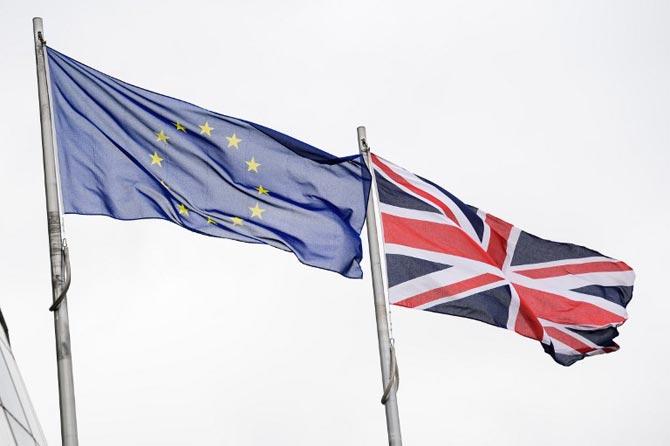Britain has voted by 52 per cent to 48 per cent to leave the European Union (EU) after 43 years in a historic referendum, BBC reported on Friday

Supporters of the 'Stronger In' Campaign react as results of the EU referendum are announced at a results party at the Royal Festival Hall in London early in the morning of June 24, 2016
London: Britain has voted by 52 per cent to 48 per cent to leave the European Union (EU) after 43 years in a historic referendum. The referendum turnout was 71.8 per cent -- with more than 30 million people voting. This was the highest turnout at a British poll since 1992.
ADVERTISEMENT
Prime Minister David Cameron -- whose future is now in doubt -- is due to address the country later in the day. The "leave" lead campaigner and former London Mayor Boris Johnson is also likely to make a statement shortly after.

As a result, the pound fell to its lowest level against the dollar since 1985 as the markets reacted to the results.
Jeremy Cook, chief economist and head of currency strategy at WorldFirst, said: "Sterling has collapsed... It can go a lot further as well."
By 4.00 a.m. (8.30 a.m. India Time), a series of key results sign-posted a likely leave victory.
After a lower-than-expected margin of victory for the remain campaign in Newcastle, where it won the backing of 54 per cent of voters, there was a jolt after midnight when leave captured Sunderland with 61.3 per cent of the vote in a city which has traditionally been a Labour stronghold.

Supporters of the 'Stronger In' Campaign react as results of the EU referendum are announced at a results party at the Royal Festival Hall in London early in the morning of June 24, 2016. Pic/AFP
Wales and the majority of England outside London voted in large numbers for Brexit.
London and Scotland voted strongly to stay in the EU but the remain vote has been undermined by poor results in the north of England.
Scotland's First Minister Nicola Sturgeon has said that the EU vote "makes clear that the people of Scotland see their future as part of the European Union" after all 32 local authority areas returned majorities for Remain.
Britain would be the first country to leave the EU since its formation -- but a leave vote will not immediately mean Britain ceases to be a member of the 28-nation bloc.
That process could take a minimum of two years, with leave campaigners suggesting that the referendum campaign may not be completed until 2020 -- the date of the next scheduled general election.
 Subscribe today by clicking the link and stay updated with the latest news!" Click here!
Subscribe today by clicking the link and stay updated with the latest news!" Click here!






